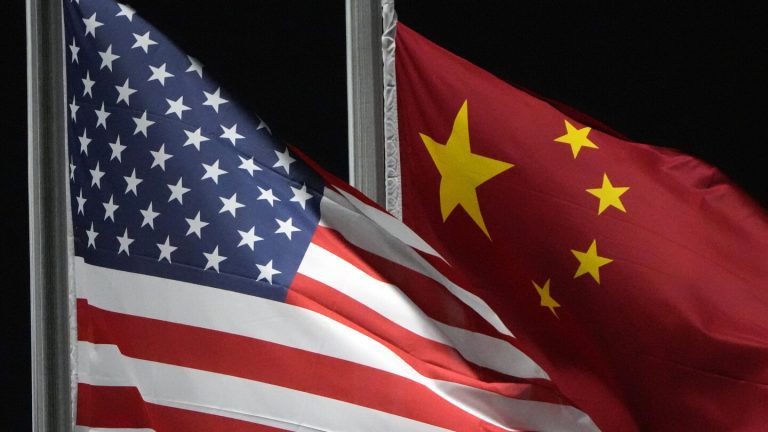WASHINGTON (AP) — The United States has updated a decades-old science and technology agreement with China reflect their growing rivalry for technological domination. The new agreement, signed Friday in Beijing after several months of negotiations, has a narrower scope and additional guarantees to minimize risks to national security.
The State Department said the agreement supports intellectual property protections, establishes new safeguards to protect the safety and security of researchers, and “advances U.S. interests through newly established and strengthened provisions on transparency and reciprocity of data.
It covers only basic research and does not facilitate the development of critical and emerging technologies, the ministry said. This includes technologies related to artificial intelligence and quantum computing, seen as crucial to economic strength and military supremacy.
China’s Ministry of Science and Technology also announced the signing, but provided no details or assessment in its one-line statement. China’s Foreign Ministry said earlier this year that such cooperation was mutually beneficial.
The first such agreement was signed in January 1979, when the two countries established diplomatic relations to counter the influence of the Soviet Union and China was lagging behind the United States and other countries Westerners in science and technology.
The deal was last extended in 2018, then temporarily extended last year and this year to allow for negotiations. Washington had come to view the agreement as not reflecting the evolving relationship between the United States and China and the emergence of China as a heavyweight in this area. The new agreement extends the cooperation for five years.
As the technology war between the two countries intensifies, the United States ban on exports of advanced chips in China and US investments restricted in certain technologies likely to strengthen China’s military capabilities. Cooperation in science and technology cooled in universities and research institutions after the introduction of a Trump-era program to combat Chinese espionage. The program ended in 2022 after several unsuccessful lawsuits against researchers and concerns that it had prompted racial profiling.
Deborah Seligsohn, an assistant professor of political science at Villanova University, said the new agreement would result in fewer government-to-government programs, but with its limited scope and stronger safeguards, it would maintain the cooperation “through a more difficult relationship.
Earlier this year, Rep. Andy Barr, a Kentucky Republican, said decades-long cooperation had allowed the United States to “provide all kinds of scientific and technical knowledge to Chinese scientists in what would amount to the greatest outpouring of American scientific and technological expertise.” in history. »
Rep. Gregory Meeks, a New York Democrat, argued that the United States and the global community have also benefited from research collaborations that have “prevented disease, reduced pollution, and deepened our understanding of the history of the Earth”.
But Meeks said he favors congressional oversight to ensure projects under the deal are consistent with American values and interests.


